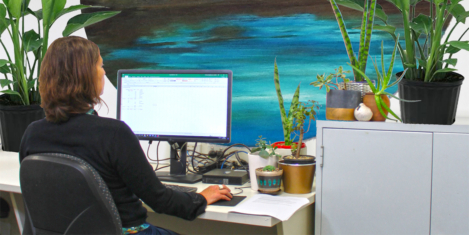To provide the best experiences, we use technologies like cookies to store and/or access device information. Consenting to these technologies will allow us to process data such as browsing behaviour or unique IDs on this site. Not consenting or withdrawing consent, may adversely affect certain features and functions.
The technical storage or access is strictly necessary for the legitimate purpose of enabling the use of a specific service explicitly requested by the subscriber or user, or for the sole purpose of carrying out the transmission of a communication over an electronic communications network.
The technical storage or access is necessary for the legitimate purpose of storing preferences that are not requested by the subscriber or user.
The technical storage or access that is used exclusively for statistical purposes.
The technical storage or access that is used exclusively for anonymous statistical purposes. Without a subpoena, voluntary compliance on the part of your Internet Service Provider, or additional records from a third party, information stored or retrieved for this purpose alone cannot usually be used to identify you.
The technical storage or access is required to create user profiles to send advertising, or to track the user on a website or across several websites for similar marketing purposes.
 Perkbox commissioned a new study of 1,815 employed people to present a examination into the changing landscape of work-related stress in 2020. The study compared results to 2018 data in order to identify how sources of work-related stress and the solutions offered by employers are changing. The study claims that 79 percent of adults in employment commonly experience work-related stress. (more…)
Perkbox commissioned a new study of 1,815 employed people to present a examination into the changing landscape of work-related stress in 2020. The study compared results to 2018 data in order to identify how sources of work-related stress and the solutions offered by employers are changing. The study claims that 79 percent of adults in employment commonly experience work-related stress. (more…)







 Having an employee representative on the director’s board has absolutely no impact on reducing the pay level of the company’s CEO, according to research from
Having an employee representative on the director’s board has absolutely no impact on reducing the pay level of the company’s CEO, according to research from 
 More than half of all strategic decisions made by directors turn out to be wrong according to
More than half of all strategic decisions made by directors turn out to be wrong according to 
 Office rent in Oxfordshire has shot up an eye-watering 24.3 percent in a year, with
Office rent in Oxfordshire has shot up an eye-watering 24.3 percent in a year, with 
 Employees enjoy working in a coworking space, claims a recent
Employees enjoy working in a coworking space, claims a recent 
 According to the latest survey from
According to the latest survey from 
 New research from
New research from 






 Despite holding firm in 16th place, the UK is being outpaced by greater improvements in female employment prospects in other OECD countries, according to PWC’s latest
Despite holding firm in 16th place, the UK is being outpaced by greater improvements in female employment prospects in other OECD countries, according to PWC’s latest 









